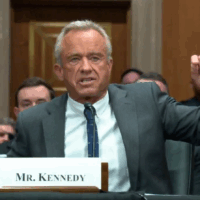A public-health professor and a surgeon at the University of Kentucky are sounding the alarm that the COVID-19 disease caused by the new coronavirus could devastate rural Kentucky, and they say rural citizens and hospitals need to be more careful.

Ty Borders, the Foundation for a Healthy Kentucky Endowed Chair in Rural Health Policy, and Sam C. Tyagi, an assistant professor of surgery, wrote a letter to Kentucky newspapers, prompted in part when one of them saw a lack of distancing and testing at a rural hospital.
“Anecdotal evidence shows that too many rural citizens and hospital personnel are not heeding federal and state recommendations to reduce coronavirus transmission,” they wrote. “It has been observed multiple times that health-care workers who have been exposed are not being quarantined and tested appropriately by these rural and community hospitals, despite requests from the health-care employees.”
Rural Kentucky is especially at risk, Borders and Tyagi say: “The first known case of coronavirus in Kentucky was in Cynthiana, a town with a population of only 6,400 persons, and cases of coronavirus have been identified in several other rural communities. The older age compositions and inadequate hospital infrastructures of rural communities place them at extremely high risk for serious cases of coronavirus and mortality.”

Very few rural hospitals have the facilities and equipment needed to treat serious cases of COVID-19, they wrote: “An inadequate supply of health-care personnel in rural areas severely limits the abilities of critical-access and other rural hospitals to deliver intensive care and respiratory services for patients with coronavirus. Transferring patients from rural to urban hospitals is not a realistic option because many urban hospitals are already facing short supplies.”
Borders and Tyagi recommended three immediate steps to limit the spread of the virus and keep rural hospitals from being overwhelmed:
- Public-service announcements “to better communicate the risk of coronavirus and rationale for social distancing to rural citizens,” perhaps adapting one being used in Alabama, including short instructions on social distancing, making hand sanitizer and masks, and handling mail and other home deliveries.
- Coordinated coronavirus testing, centralized at hospitals, clinics, health departments, or drive-through testing areas, to “reduce coronavirus exposure among health-care personnel.”
- Expansion of hospital facilities and equipment, especially intensive care units and ventilators. “State government and the hospital industry must carefully coordinate the expansion of hospital capacity,” they wrote. “The supply of ICUs and ventilators must be accurately and continually assessed and then reported in a transparent fashion to hospital administrators, clinicians, and the general public.”
- Urging quick action, Borders and Tyagi concluded, “Government and hospital leaders must act faster than the rate of coronavirus transmission.”





